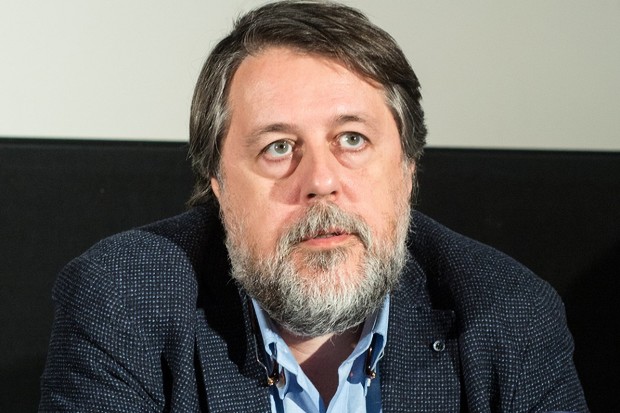Vitaly Mansky • Director
“We wanted to let the viewer see how people really behave”
- Cineuropa met up with Russian filmmaker Vitaly Mansky, whose documentary Under the Sun, co-produced by North Korea, is competing at Tallinn's Black Nights Film Festival

Veteran Russian filmmaker Vitaly Mansky has managed to achieve quite a feat: his new film was co-produced by the utterly hermetic and secretive Republic of North Korea. His documentary Under the Sun [+see also:
film review
trailer
interview: Vitaly Mansky
film profile], which was one of the main winners at the recent Jihlava International Documentary Film Festival (read the news), shows how the country wants him to depict an “ideal life” of an “ideal family” in an “ideal country”. Trying to catch a glimpse of the truth that lies beneath the story staged by the North Korean authorities, Mansky does his best to achieve a good balance between collective and individual, artificial and natural, fake and true. Cineuropa met up with him during Tallinn's Black Nights Film Festival, where his film has been selected in the Main Competition.
Cineuropa: How did you come around to this project?
Vitaly Mansky: I had been interested in North Korea for a long time, and as soon as I got the opportunity to go there to make a film, I went for it. Nonetheless, it only came about after a long and drawn-out procedure of writing letters to the authorities, and after having established a strong way of communicating with them. Another reason is also that, nowadays, one of the two main countries that North Korea partners with is Russia – the other being China – and that, of course, made it easier to start the project and to work together.
Yet the film is also co-produced by other European countries (Germany, the Czech Republic and Latvia). Was it difficult to get them on board as well?
The production developed in a very specific way. First, the North Korean part started the project; there was the filming group shooting in Korea, where they had to follow the rules of the project managers. After this first phase, we had to look for partners outside North Korea because we needed funding and a means of doing post-production, and we looked for that in other European countries. There was a huge amount of work in post-production, which was comparable to the post-production of a big-budget film. We needed thorough work to be carried out on sound design, colour correction, music design... nearly everything.
Do you think this kind of project with North Korea could happen again, or is it a one-off?
Interesting question, but I don't have an answer for that. I don't understand that country. The motivation and reasoning of the North Korean part was kind of hidden; we still don't know exactly why we got permission to film there, so we don't really know if they will provide permission to other countries to make more films.
Was the final result accepted by the North Korean authorities, even though it shows how artificial their whole idea was?
The contract we initially signed about the project was in order to make a big film in North Korea. A whole series of events took place, and we ended up making just a little part of this film. The main part wasn't filmed, so that's why the contract was stopped. That's why, in the end, we didn't have to show them the result.
Even though the project was completely staged, and you could only shoot what they told you to, you manage to capture the real humanity of the people in it, through close-ups and very intimate shots. Was it difficult to achieve this?
It is hard to answer a compliment like that. We wanted to try and capture all of that, all of what we wouldn't be able to find in this staged story they were making us shoot. We did it by filming right before and right after what they wanted us to shoot. For example, when we got to these huge collective choreographies in the film, if we started shooting right when they began, and stopped right when they ended, it wouldn't have worked. We wanted to let the viewer see how people really behave. It is very different when they are just by themselves and when they are playing this role they are told to play. That was what we wanted to show, the small moments before and after the events that we see taking place, the moments when you can really observe what their actions and reactions are.
Did you enjoy reading this article? Please subscribe to our newsletter to receive more stories like this directly in your inbox.
















